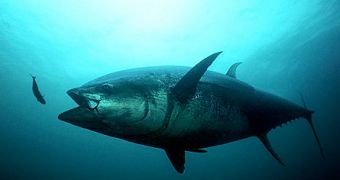Only yesterday, the World Wildlife Fund made is public news that, according to one of their latest estimates, roughly 18,704 tonnes of live bluefin tuna were traded via Panama between 2000 and 2010.
This was done without the International Commission for the Conservation of Atlantic Tunas ever hearing a word about it.
Apparently, the fish came from countries such as Spain, Italy, Morocco, Tunisia, Turkey and Panama, and most of it (an estimated 13,730 tonnes of processed tuna) ended up being sold on various Japanese markets.
Several complaints have thus far been raised with respect to how an improper management of the fish stocks we have at our disposal, coupled with the effects of global warming, can lead to a wide-spread food crisis.
Therefore, the World Wildlife Fund asks that the European Commission give due consideration to these illegal trading activities, and take whatever measures are necessary to end them.
“This is the first ever study on this issue and it probably shows only the tip of the iceberg.”
“We finally managed to get the proof of a situation that has been acknowledged for many years even by the ICCAT itself,” Dr. Sergi Tudela, presently employed as the head of the World Wildlife Fund Mediterranean Fisheries Programme, commented on these findings.
Furthermore, “According to available records, not a single shipment identified by th report was ever reported to ICCAT. If confirmed, it would fully qualify as illegal, unreported and unregulated (IUU) fishing according to the United Nation's FAO standards and would equal environmental crime.”
Apparently, the peak years for these illegal trading activities were 2003 and 2004, when supposedly a total of 6000-8000 tonnes of processed bluefin tuna was shipped to various parts of the world via Panama.
As the UN Food and Agriculture organization explained not very long ago, food security is presently threatened by the global over-exploitation of fish stocks, and more often than not this over-exploitation comes as a result of people's exceeding legal quotas.
“Using the precautionary approach, a holistic suite of ecosystem- and science-based measures must be adopted if we are to realize the clear economic, environmental and social benefits of sustainable managed fisheries,” argued at one point an environmentalist working with the World Wildlife Fund.

 14 DAY TRIAL //
14 DAY TRIAL //